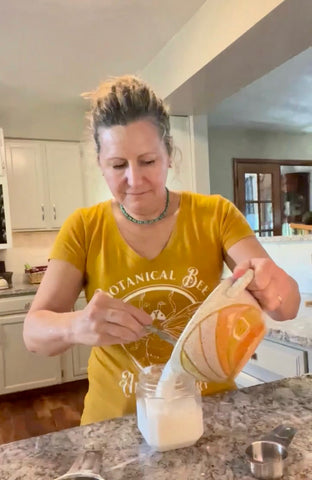
The Impact of Toxic Cleaners on Human Health, the Environment AND A Nontoxic Alternative That Actually Works

Recently, while doing some research for a blog on endocrine disruptors The Toxic Truth: Misplaced Faith In A Buyer Beware World , I came across a study by the National Center for Biotechnology Information (NCBI) that documents the pervasive use of personal care products (PCPs) in our daily routines and the fact that many of these PCPs have harmful ingredients not disclosed in the product marketing or label. Numerous PCPs, including household cleaners and fabric softeners, incorporate diverse fragrances. Also, glycol ethers, renowned for their dual hydrophilic and lipophilic properties, are commonly utilized as cleaning agents in various household cleaners. The harmful properties of these products are obscured through incomplete and ambiguous labeling practices made possible by lax regulation and marketing processes engineered by the manufacturers themselves. The potential harm is not limited to humans. Because PCPs are ubiquitous and available worldwide, their constituent parts eventually find their way into wastewater systems, landfills, aquifers, rivers, lakes and oceans. These compounds continually release biologically active and inactive ingredients into the atmosphere, biosphere, and geosphere, leading to adverse effects on humans, wildlife and marine life. Moreover their production and packaging often involve the use of non-renewable resources and contribute to carbon emissions and waste generation. Opting for safer and eco-friendly cleaning alternatives is not only crucial for safeguarding human health but also for preserving the health of our planet for future generations.
Synthetic Fragrances
Many common skin care products contain synthetic fragrances, which is another way of saying chemical compounds engineered in a laboratory to mimic the odor of flowers. Artificial fragrances are often generically identified as "fragrance" on ingredient labels. That is a red flag. Even products labeled "natural fragrance" often contain only trace amounts of botanical oils combined with an undisclosed cocktail of artificial chemical compounds designed to mimic the natural botanical flower. Sometimes those compounds are safe, sometimes they are not. Best practice is to look for labels specifying “no artificial fragrances.” Then if it smells like lavender, you can be sure it’s lavender oil and not 3,7-Dimethyl-1,6-octadien-3-ol, aka Linool.1
Glycol Ethers
Glycol ethers are chemical compounds used in industrial solvents, but also in soaps and cosmetics. Glycol Ethers are associated with reproductive toxicity, developmental defects, and central nervous system impairment. Difficult to spot on labels, the most common listings are 2-methoxyethanol (EGME), diethylene glycol (DEG) and 2-butoxyethanol, aka, ethylene glycol butyl ether (EGBE).2
GG was always in search of effective natural alternatives to everyday commercial cleaning products. One little gem of a recipe is GG's Non Toxic Soft Scrub. Store bought real Soft Scrub is expensive, contains harmful endocrine disrupting chemicals and is packaged in disposable single use plastic containers that are terrible for our landfills. Grandma Gwennie to the rescue. This homemade, non toxic recipe works great, will save you money and doesn’t harm our environment. We use this for cleaning sinks, tubs or anywhere else you would use a soft scrub type cleanser.

Happy non toxic cleaning!!!
Botanically Yours,
Dena S.
Founder, Botanical Bee Apothecary

1 https://www.dsm.com/personal-care/en_US/products/aroma-ingredients/linalool.html#
2 https://www.ncbi.nlm.nih.gov/books/NBK589662/




Comments